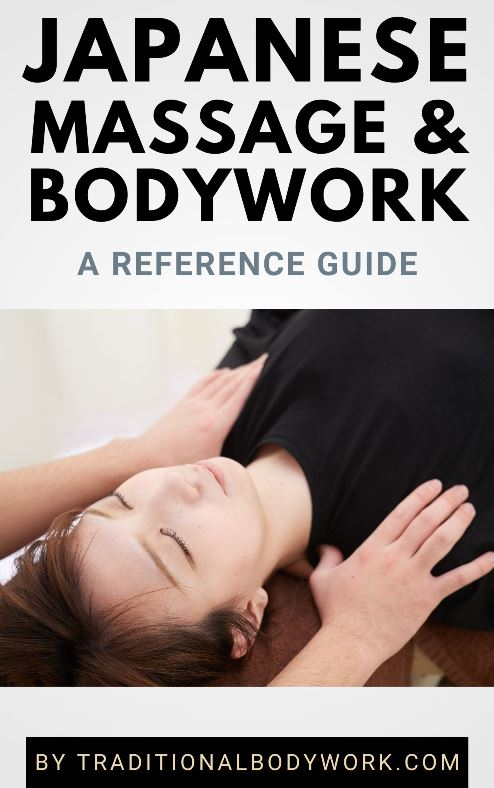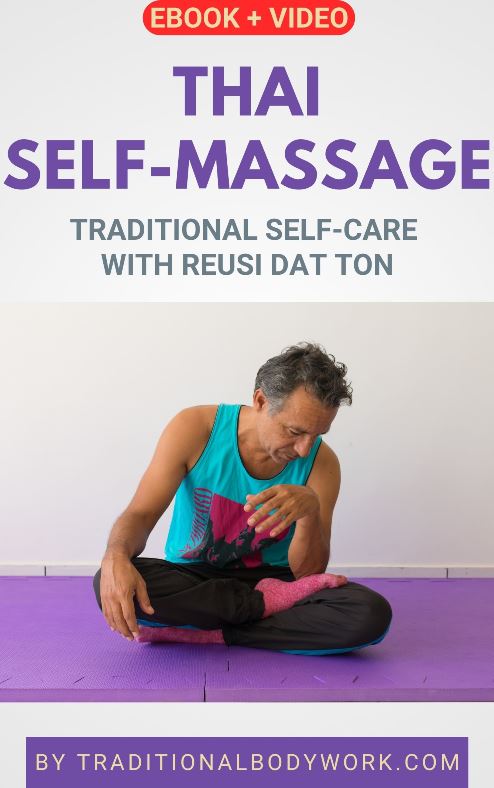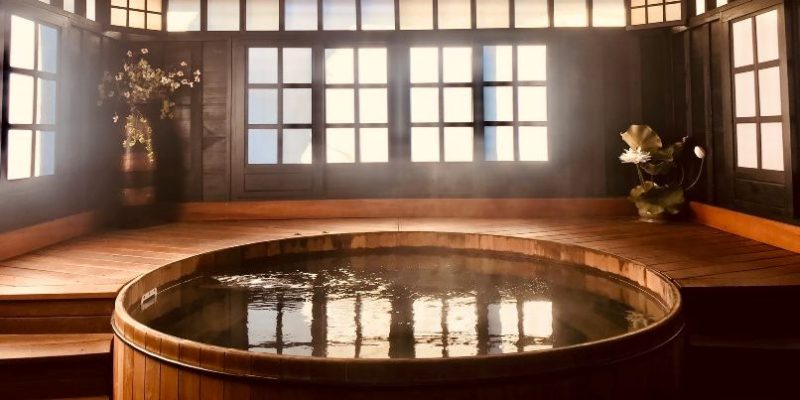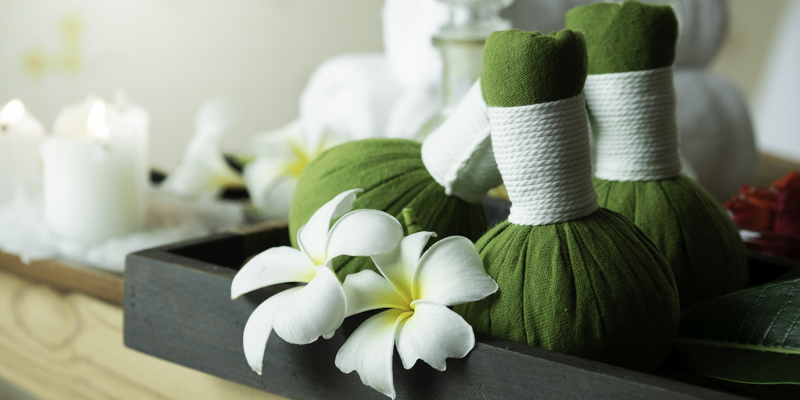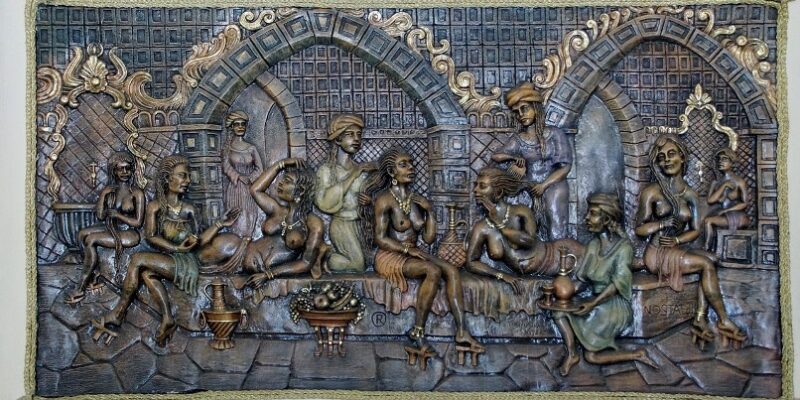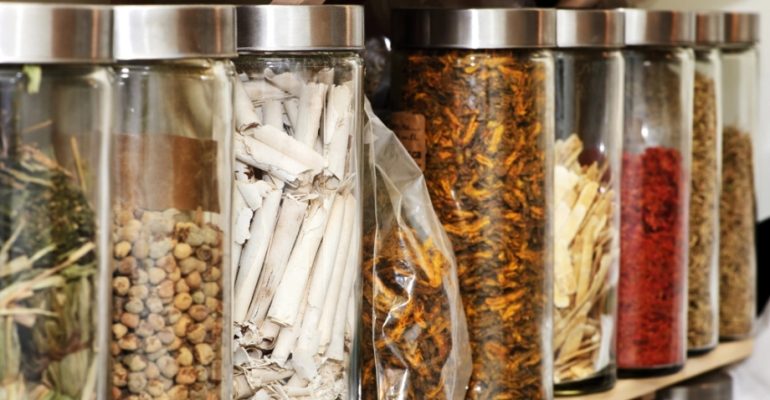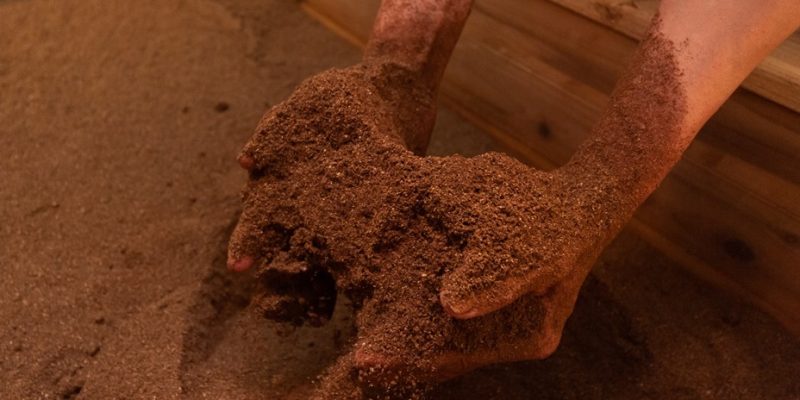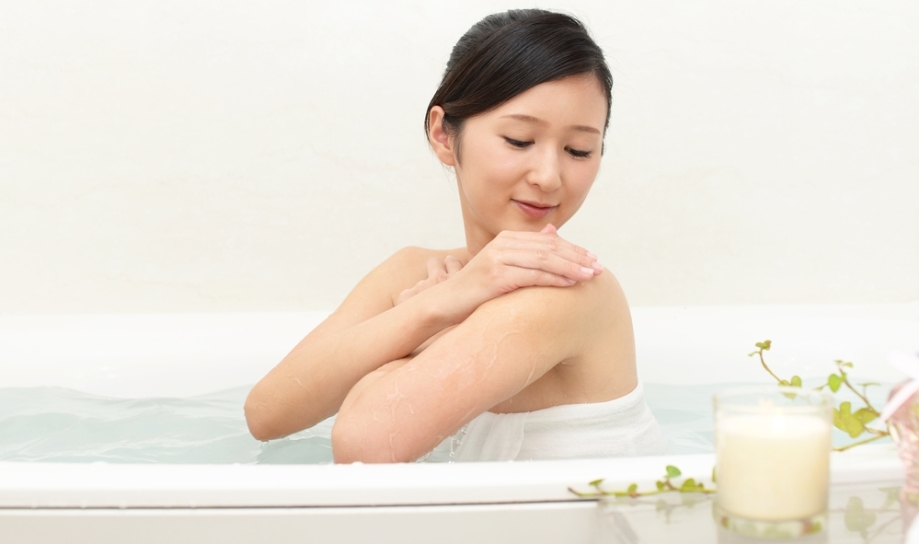
Plain herbal baths, not to be confused with herbal steam baths, have been used in Asia for centuries. Typically, a herbal bath is taken warm, that is, with a water temperature between 38℃ and 40℃.
Of course, the various herbal recipes used were (and still are) based on the local cultural habits, the applicable traditional medicine systems — TCM, Ayurveda, Thai Healing Arts, and so on — and the (therapeutic) goal of the treatment. Recipes contain fresh, dried, or boiled herbs, or a combination of it. Some herbs are used for their medicinal properties, others simply for the pleasant smell they give.

A herbal bath can be taken by pouring water with an herbal concoction over the body or by immersion in a bath tub or other recipient. After bathing, the water on the skin is left to dry slowly, without wiping the skin off. It’s believed that the remaining herbal materials on the skin will be absorbed better and produce a deeper and longer lasting effect.
Traditionally, mothers after childbirth were also bathed using herbal baths, being one of many treatments in Asian traditional postpartum care. However, for postpartum mothers additional special herbs were put in the bathing water, not just to clean the body, but also to restore vitality and health.
In any case, depending on the types of herbs applied, some benefits claimed for herbal baths are:
- Skin cleansing and peeling (removal of death cells and tissue debris);
- Opens pores and sweat glands for detoxification;
- Freshness, cleanliness, and good smell of the skin;
- Stimulates blood circulation, which has inherent healing effects such as wound healing and inflammation reduction;
- Supports weight reduction;
- Reduces muscle aches and fatigue;
- Mood relaxation and stress reduction;
- Prevention of postpartum depression;
- Combats insomnia;
- Reduces fungus infections;
- Treats skin sores and wounds;
- Alleviates arthritis and general pains;
- Reduces general pains;
- Alleviates itchiness.

